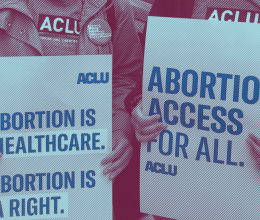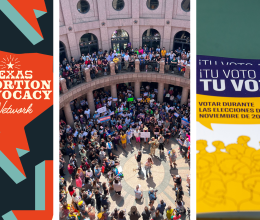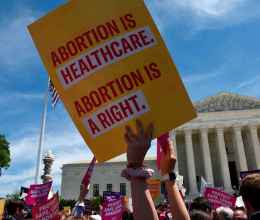
The ACLU of Texas along with ACLU National and other partners filed a federal lawsuit challenging a new Texas law banning abortion as early as six weeks in pregnancy, before many people know they are pregnant. If allowed to take effect, this law would effectively eliminate abortion access in the state and impose an unconstitutional ban on abortion.
Texas Senate Bill 8 (SB 8) is set to take effect September 1, 2021. This unprecedented law authorizes private individuals to file civil lawsuits to “enforce” the unconstitutional abortion ban. This scheme allows anyone — a relative, an abusive partner, or even a stranger — to sue the health care provider and seek a court order that would block the patient’s abortion and prevent the provider from performing any abortion after approximately six weeks in pregnancy. The law also incentivizes bounty hunting by offering money “damages” of at least $10,000 to anyone who successfully sues an abortion provider or anyone who “aids and abets” after approximately six weeks in pregnancy.
The case was filed in the U.S. District Court for the Western District of Texas on behalf of a broad coalition of Texas abortion providers, their patients, clinic staff, abortion funds, practical support networks, and clergy.
To view, download, and save additional legal documents associated with this case, please visit ACLU National.
Update 12/1/21: The U.S. Supreme Court issued a decision effectively ending the most promising pathway to block SB 8. In a 5-4 majority, the court ruled that the most significant part of our case must be dismissed, ruling that the health care providers could not bring suit against the classes of state judges and clerks, the state attorney general, or the private litigant we sued. The ruling allows our lawsuit to continue against a narrow number of defendants, including the Texas Medical Board, but this would not prevent bounty-hunter lawsuits from being filed. In a separate ruling on the U.S. Department of Justice’s challenge to the law, the court denied the DOJ’s request to block the law and sent the case back to the Fifth Circuit Court of Appeals, which already wiped out emergency relief to restore abortion access.






